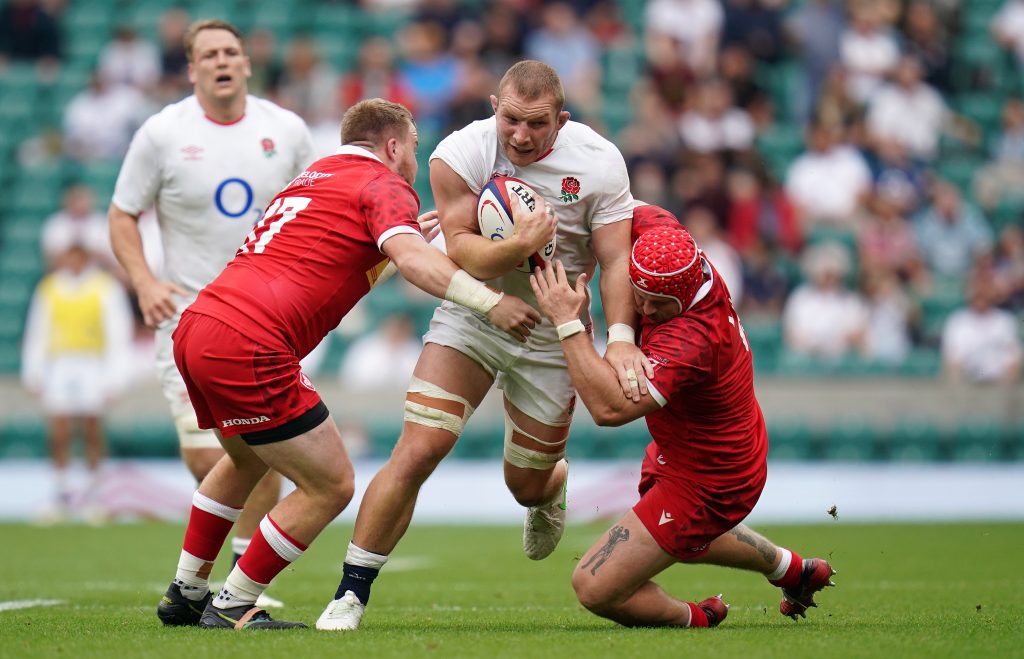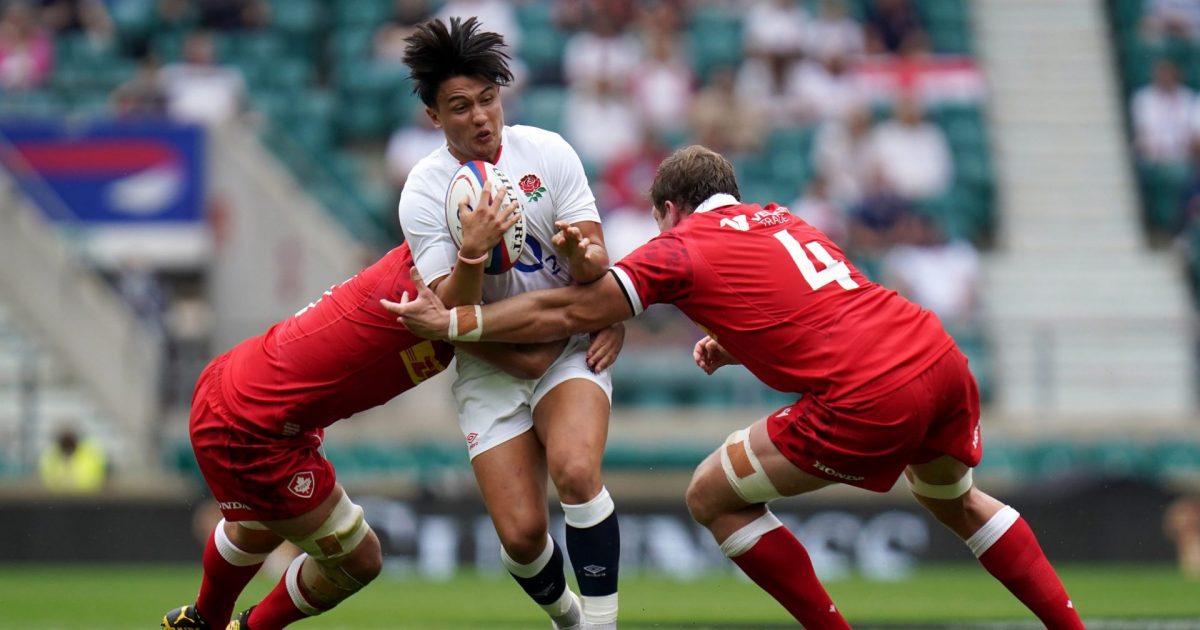Marcus Smith piloted England’s 70-14 rout of Canada – unaware he had been called up to the British and Irish Lions tour of South Africa.
Smith’s madcap month took another remarkable twist, with the Harlequins fly-half receiving a Lions call-up midway through England’s 10-try romp at Twickenham.
Jamie Blamire and Adam Radwan bagged hat-tricks, with Joe Cokanasiga claiming a brace and Ellis Genge also crossing in addition to a penalty try.
But Smith’s Lions elevation was the talk of the 10,000 fans in Twickenham – who all knew about his call-up before the man himself.
The 22-year-old steered Harlequins to an unlikely Gallagher Premiership final victory on June 26, quickly following that triumph with his first two England caps.
But while the fleet-footed playmaker was en route to a 100 per cent return of nine shots at goal, he was also called up to the Lions squad as injury cover for Scotland fly-half Finn Russell.
The Lions confirmed Smith’s call-up at the start of England’s second half.
And as word filtered around Twickenham, supporters were trying their best to break the news to the uninformed fly-half.
Smith was replaced by George Furbank with 15 minutes to play, and appeared to discover his Lions fate on leaving the field.
While Smith was all set to race to the airport to jump on a flight to South Africa, his other England team-mates were left to toast a well-constructed win.
Ross Braude and Kainoa Lloyd claimed tries for a Canada side that were outclassed, with England effectively in control throughout.
Sam Underhill’s immediate turnover from kick-off set the tone for England’s near total dominance.
Blamire capped a driven penalty lineout, Smith converted – and so started the procession of try scorers.
Braude hit back straight away with a neat finish from a tapped penalty, but a penalty try had England back in control.
Lock Conor Keys was sin-binned for collapsing a maul to gift England that penalty score.
Radwan capped a neat arcing break with a good finish for his try, before Cokanasiga bullied the Canada defence for his two scores in three minutes.
Captain Lewis Ludlow’s cheap yellow card opened the door to a second Canada score, with wing Lloyd finish well in the right corner and Peter Nelson converting.
Blamire crossed again to ensure England had the last word in the half however, for Jones’ men to lead 42-14 at the break.

Vice-captain Genge opened the scoring after the interval, for England’s seventh try.
Radwan raced in for his second score of the game quickly afterwards, taking a fine scoring pass from Alex Dombrandt.
Smith extended his 100 per cent record still further with yet another conversion, to put the hosts 56-14 to the good.
Blamire completed his hat-trick with final act of the afternoon before being substituted.
And just moments later, Radwan sealed his own treble.

















